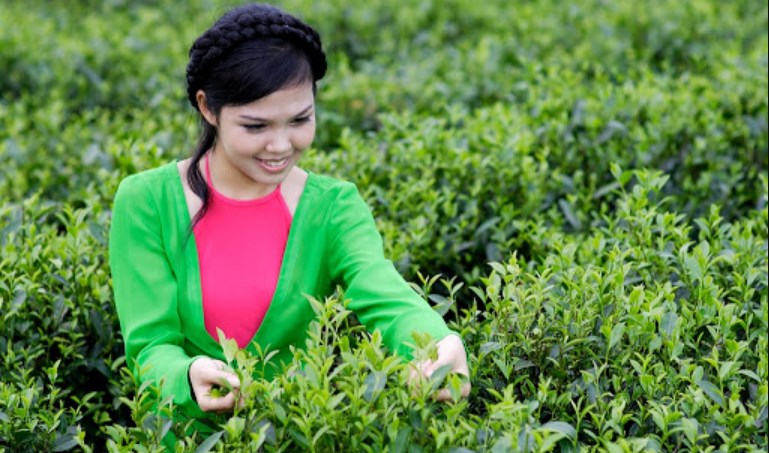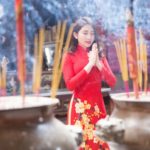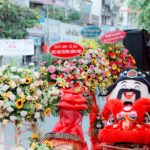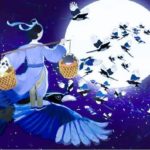What Does the First Harvest of the Year Symbolize for Fortune in 2021?
What is the Date of the First Fortune of 2021?
The practice of picking at the beginning of the year involves carefully selecting and collecting branches, also known as buds, for the purpose of bringing them home and offering prayers for good luck and positive outcomes. This ancient tradition often involves the use of a small banyan branch, commonly referred to as “Loc”, or other suitable branches. Many individuals also opt to pick tea leaves for the same purpose. Typically, trees chosen for this ritual are those that maintain their vibrant foliage throughout the year, symbolizing the promise of new growth and fertility within the household.
Harvesting is a revered tradition in Vietnam, typically carried out during the Lunar New Year celebrations in the early days of the new year. This cultural and religious practice holds significant importance for the Vietnamese people, representing a beautiful ceremony that fosters trust, uplifts the soul, and encourages individuals to lead more purposeful and aesthetically pleasing lives.
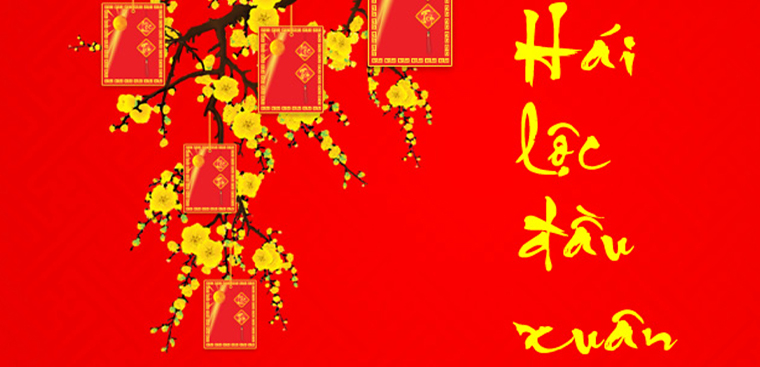
Tracing Back the Roots of the First Harvest of the Year
According to ancient traditions passed down by our ancestors, the practice of determining one’s fate has been present since the time of the Hung Kings. It is said that on the first day of spring, King Hung gathered Lac Hau, Lac General, his subjects, and his children to educate them on the importance of spreading knowledge on commerce and fortification to the people.
The royal siblings experienced a momentary bond and were reluctant to part ways. The queen expressed, “Our children genuinely adore both their mother and father, and have no desire to be separated from us. Therefore, I propose that the King offer prayers and offerings to the divine, and subsequently utilize the method of selection and distribution, so that we may proceed accordingly.”
Upon realizing the sensible nature of the situation, the King commanded Lac Hau, Lac General, and their offspring to return and rest. Subsequently, on a favorable day and month, the King conducted a solemn Heaven-Earth Sacrifice atop Nghia Linh mountain (in present-day Phu Tho province) in order to beseech blessings of rain and wind from the divine, thereby ensuring the happiness of all people. In anticipation of the change, the King and Queen ventured into the forest to gather the blossoming buds of early spring. At dawn, as the sun emerged from the eastern horizon, the King distributed a bud to each of his sons, imparting teachings upon them:
Young at home, old at home
From the mountains to the sea
The King instructed the children to fetch this twig to safeguard the pathways, educate the populace on commerce and livelihood. When faced with misfortune along their journey, they were advised to acquire morning dew from this twig and sprinkle it upwards, causing wild animals and malevolent spirits to flee harmlessly. Upon hearing the King’s decree, the children respectfully acknowledged their parents, accepted the branches, and distributed them to protect various regions and assist all nations.
The Vietnamese have developed a tradition of seeking fortune over time. According to the belief, on New Year’s Eve or early on the first day of the New Year, it is customary for grandparents to collect a small bud from a temple, pagoda, shrine, or their own garden. This bud is then placed in a vase or hung on the front porch. It is believed that this act will bring good fortune and luck throughout the year, bestowed by God or Buddha.
What is the Significance of the Early Spring Harvest of Tea Leaves
Picking fortune is a cherished tradition for many Vietnamese during Tet, as it is believed to bring good luck and ward off bad luck in the new year. The act of picking fortune represents the hope for positive outcomes and abundance in the upcoming year, symbolizing resilience and growth despite challenges.
According to popular belief, visiting a temple or shrine and sincerely asking for a small fortune tree can bring blessings of fortune and luck throughout the year, as it is believed to be blessed by God and Buddha. Praying for fortune through such a tree is seen as a symbol of prosperity and abundance.

However, “picking buds” does not refer to the mere act of physically plucking a branch, tree top, or sprouted branch from a tree. In the eyes of the ancients, the concept of reaping fortune also encompasses the principle of cause and effect, such as the idea that one must work in order to eat and that actions have consequences. True luck and happiness can only be obtained through action and words. If one is lazy, they will not experience any positive outcomes.
How to Have a Lucky Start to the New Year
Individuals have the option to visit temples, churches, parks, or the vicinity of their own homes to collect fresh young leaves, which can be subsequently placed within their household or on the altar.
There are numerous varieties of twigs each with their own distinct meanings. Chicken egg branches are believed to bring good luck and symbolize family reunion. Lucky branches are associated with desires for fortune and fame for the entire family. Begonia flower branches are regarded as a symbol of wealth and prosperity.
However, the true reward lies in taking action. In recent years, there has been a misinterpretation of the tradition of picking buds in early spring, leading to negative consequences and abuse of this custom. We are all familiar with the sight of people going to great lengths to climb trees and break branches in their quest to select the biggest and most beautiful buds. There are even those who visit banks and treasuries in search of financial fortune, hoping for a year of great success.
There are various methods for selecting buds without causing damage to branches or trees. Following New Year’s Eve celebrations or visits to temples and shrines at the start of the year, individuals have the option to purchase items such as sugar cane, yellow branches, jade leaves, or small potted plants as a means of divination.
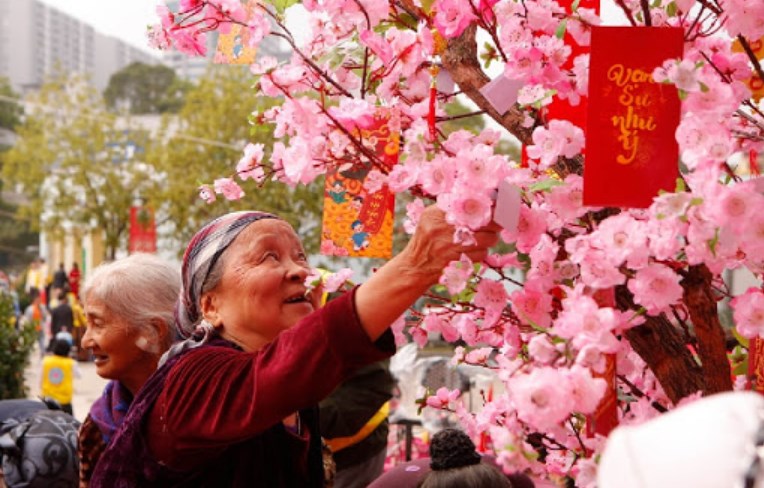
On New Year’s Day, local authorities are grappling with a concerning issue of trees being extensively damaged and broken. This unfortunate sight of numerous trees being destroyed has become a pressing matter. The unintentional practice of picking buds has also contributed to a negative image. Not only does this cause harm to the environment, but it also results in the loss of urban aesthetics.
According to Prof. Ngo Duc Thinh, in the past, it was common for individuals to visit temples during the New Year, seeking blessings and good fortune. However, today this practice has been distorted, with some individuals engaging in destructive behavior, lacking cultural knowledge and understanding. It is important to note that seeking blessings does not require causing harm, such as breaking branches or uprooting trees.
In order to fully enjoy the rewards of our efforts, it is imperative to maintain our moral integrity and purity. This ensures that the opportunities and achievements we receive are truly valuable and meaningful. To lead a fulfilling life abundant with blessings, one must actively cultivate a multitude of virtuous actions.
In addition to enjoying the advantages, it is important to engage in acts of kindness and nourish the mind through positive thoughts, words, and actions. Furthermore, grandparents belief that fulfilling one’s responsibilities will attract good fortune.
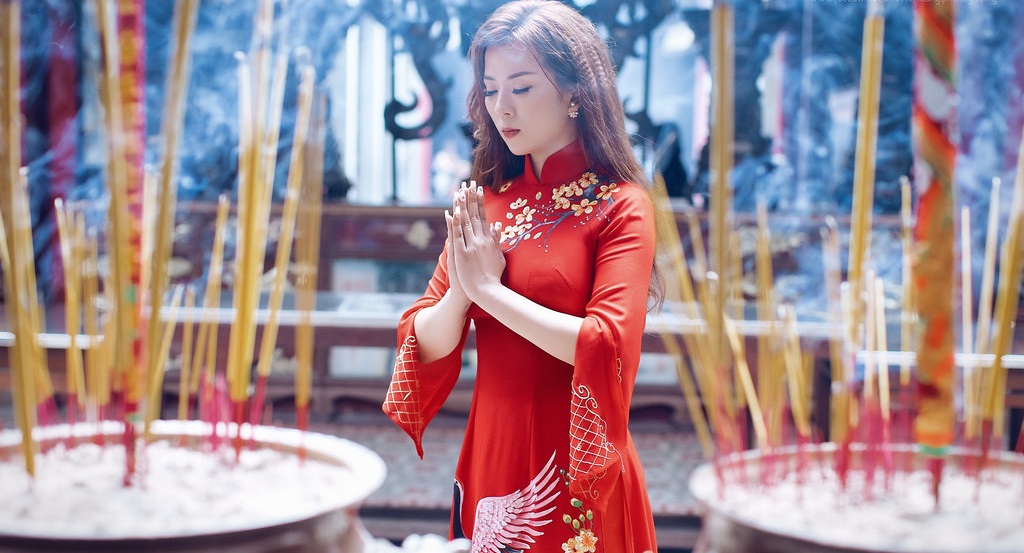
Tips for Selecting Flower Buds in Early Spring
When selecting fortune, it is important to be aware of certain taboos. These taboos encompass not only spiritual considerations but also environmental concerns. To assist you in your selection of early spring buds, here are some guidelines to keep in mind:
- When selecting buds on New Year’s Eve, it is important to exercise caution and choose carefully to avoid bringing wilted leaves or branches with thorns into the house. Bringing such elements inside can inadvertently bring negative energy to the family.
-
To create an elegant display, you don’t need to choose large or beautiful branches. The quantity of branches matters more than their appearance. Even a small symbolic branch can suffice.
-
In addition to partaking in the tradition of picking the first fruit of the year and offering prayers to God and Buddha on New Year’s Day, it is important for each of us to cultivate self-awareness on a daily basis. This entails making conscious efforts to modify our lifestyles, thought patterns, and verbal expressions, aligning them with moral principles and societal standards.
